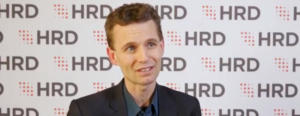Comfort zoning and the perils of complacency
- 4 Min Read
Sustained high performance doesn’t happen out of chance. You can get lucky and it can be a happy accident but there’s far more than luck at play when it comes to wearing the winning shirt all season. It’s time to exit your comfort zone to ensure high performance within leadership.
- Author: Idris Nagri
- Date published: Apr 9, 2018
- Categories

A strong leadership culture is at the heart of continued success in any walk of life. The parallels between sport and business are pretty compelling and they are all underpinned by mindset. Comfort zone dwellers exist in all kinds of organisations and can be spotted at twenty paces.
In the world of business, they come in varying guises and their impact can be felt at all levels, right up to the c-suite.
The prospect of change
How people hold change is critical in the workplace. For many, change is unsettling and it incites anxiety and fear of the unknown. Those who are afraid of change can be reluctant to embrace it and find themselves reverting back to their comfort zones because it brings familiarity. While it might seem like an attractive proposition, comfort zone dwelling brings no relief, as change is inevitable so adapting to new circumstances is an essential life skill.
At the other end of the spectrum is complacency that derives from self-preoccupation. Ego-fuelled individuals are dangerous in a team environment in that they only see situations in relation to their own personal gain. In a high-pressure environment, teams are open to scrutiny and change brings demands that egocentric people can find difficult to respond to. When a team is challenged to go up a gear, the big ego’s first response is ‘What’s in it for me?’
Know your team
The primary role of a leader is to know their team. Teams are made up of a host of personality types, each with different motivations and ways of operating – there is no ‘one size fits all’ approach. Understanding what makes people tick enables leaders to identify comfort zoning in action and to be mindful of ‘pack mentality’.
Team dynamics are complex, but the overriding characteristic is the ability to act as one. Factions in a team can vary from mildly unsettling to utterly toxic. Those with a lack of desire to change often surround themselves with a protective layer. It’s the job of the leader to navigate these minefields and to break up the pack by identifying influencers who can isolate aggravators. They are the people who are constantly seeking validation to justify their fixed mindsets.
Creating a movement
John Kotter’s process for Leading Change calls upon the need for urgency and momentum as a drive for taking action. Overcoming complacency in all its forms is about tapping into skill-sets and characters in the team to identify and develop agents of change. Those who fear change can be buoyed by this energy. It can quell their doubts and build confidence to help them to open up to opportunities rather than focusing on obstacles.
The naysayers lurking in the corridors who refuse to be exposed to the scrutiny that change brings are more precarious characters to deal with. There may be natural casualties in the form of internal challengers who resist the process of cultural development.
The vulnerability of success
It may sound ironic but the most dangerous times for organisations is often when they are at their most successful. So, why is that?
- It challenges good teams to be great teams by asking how they can keep improving what they do, even when they are in the top spot
- It sometimes creates an environment where people expect to succeed based on track record, without feeling the need to go the extra mile
- It takes an awful lot of mental energy to keep aiming higher – that’s why many people prefer to ‘stick’ and not ‘twist’ in the game of high performance
- Success can easily go to people’s heads. Inflated egos can be dangerous if they start to place individual gain above team performance
Complacency at the top
Leadership cultures are critical in setting the standard of performance for an organisation. There can be a very visible disconnect when a leader is unable to step up to the plate when a new standard is required, particularly if people within the team have more energy and drive as this can create resentment, frustration and lack of motivation.
With talent comes responsibility and an unrelenting drive to pursue marginal gains. Strong leaders need to look in the mirror a lot, and not for vanity’s sake but to ask themselves if they are consistently being inspirational and accountable, while also staying humble.
Author
Pete Lowe is the founder of Macclesfield-based training and performance enterprise First Team Ltd. Pete spent 13 years at Manchester City FC in the dual role of coach and Head of Education and Performance Management.







